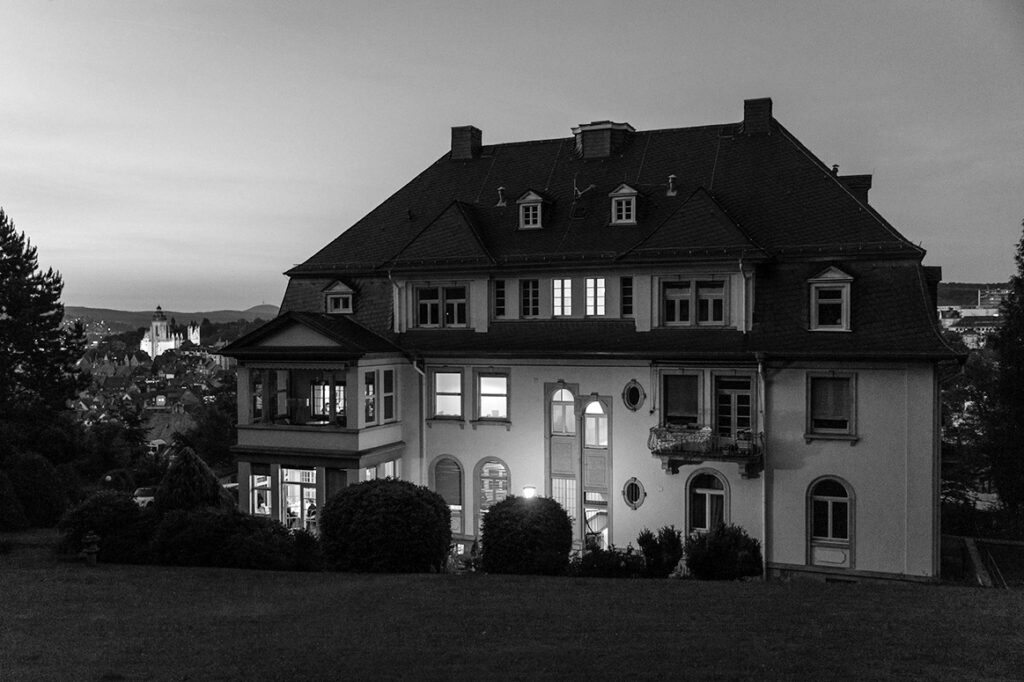The Matryoshka Memoirs moves from 2011 in my grandmother Irina Kylynych’s kitchen to her World War II story of being rounded up by the Nazis, her brief time as a forced labourer in the Leica factory, her work transfer to the camp hospital, and her eventual role as a domestic in the mansion of Leica heiress, Elsie Kühn-Leitz. In this section, the present-day making of “meat on sticks,” a Ukrainian dish of skewered beef and pork for a family lunch, gives way to the story of Irina and Elsie’s first meeting in 1942. – The Matryoshka Memoirs, Sasha Colby, ECW Press.
My grandmother sighs again, as though wearied by the silence.
“You know we have no meat at home,” she says, the texture of the meat against her fingertips seeming to summon the memory of its absence. “I no learn to make meat on stick until we leave DP camp with other Ukrainian and Russian people and live in Belgium on way to Canada.”
My mother and I keep skewering, allowing the quiet to do its work.
“In Ukraine, maybe some fish and nuts at Christmas. When Germans come, Collective put out embroidered tablecloth with bread and salt, traditional welcome. We think maybe Germans save us from Stalin, from terrible hunger. Stalin hate Ukrainians, try to starve us to death, and we hungry all time. Lady who lived next door to us in village so hungry she go crazy and eat her own children. When we kids, Mama no let us out at night in case someone steal us for meat. But Germans take all young people in trains to work camp in Germany. They have food but they give us so little, enough to keep working.
“You know, too, that I lucky. Lots of people suffer in work camp. Make what happen to me like some kind miracle.”
September, 1942
Wetzlar, Germany
One morning, a woman in her late thirties enters the camp hospital. She is dressed in a soft camel hair coat, her dark-blonde hair smoothed back into two buns which sit just below her ears. Her manner is calm and considered. Doctor Braun speaks with her in low, respectful tones. Quietly, the woman makes her way around the medical clinic, speaking in German to each of the Eastern European hospital workers, each of whom responds in the same. Irina is rolling bandages in the corner of the clinic when the woman approaches her.
“You are making quick work of that,” the woman says. “Quicker than my children could unroll them, which is saying something.”
“They are used up very quickly, gnädige Frau.”
“What is your name?” the woman asks.
“Irina Kylynych.”
“I am Elsie Kühn-Leitz. You may call me Frau Elsie, Irina.”
The woman smiles and gently squeezes Irina’s arm before moving on and Irina smells her perfume, the light scent of lilies, which quickly dissipates into the antiseptic smell of the clinic. When Frau Elsie has finished touring the room, she and the doctor speak briefly in the corner by the medical supply cabinet. Frau Elsie then steps out of the clinic into the barren yard beyond.
Doctor Braun nods. “Marina, Irina, Leah,” he says, his voice clipped.
Irina puts down the bandages and approaches the doctor along with Marina, a stocky, dark-haired woman from Odesa, and Leah, a taller redhead from outside Kyiv.
“Frau Kühn-Leitz has chosen the three of you to work at Haus Friedwart, her family’s home on the hill.” Doctor Braun turns, his beard short and angular in profile against the leanness of his face. “The Leitz family is very important,” he adds unnecessarily. “Do not make any mistakes.”

